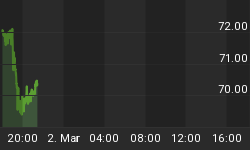“Ashes to ashes, dust to dust,” no longer.
This phrase, generally used during burial ceremonies, suggests that every life will one day come to an end. Today, the flurry of startups businesses seeking to change timeless traditions is challenging even this. Now, one can obtain eternal life by becoming compost witnessing rebirth as a tree.
Traditional funerals, in the form of cremation, embalming and burial, are now giving way to new alternatives with the emergence of new funeral startups that aim to disrupt the overpriced services sector by offering something cheaper and better.
The market they are targeting is sizable. With nearly 2.6 million deaths every year in the United States, a new class of entrepreneur sees plenty of opportunity to innovate.
Considering the fact that 41.4 million Americans live below the poverty line and that 40 percent of US citizens cannot afford an unexpected expense of just $400, it is clear that a majority of Americans would be unable to absorb the average cost of a funeral, which sits at around $8000.
Due to the nature of the business (that everyone is bound to use the service at some point) it was long believed that nothing could jeopardize the funeral industry. Yet, due to the high cost and availability of cheaper alternatives, it seems that all sectors of the industry have been reporting losses over the past decade.
Currently, the coffins and caskets market is worth some $550 million, but that belies an annual decline rate of 3.6% over the last five years. That rate is expected to accelerate to about 4.1% in the next five years. Skilled embalmers have been particularly hard hit, with employment in that profession declining 28% in less than 10 years.
Back in 2015, cremation surpassed traditional burial rates across the country for the first time, largely because of consumer attempts to reduce costs associated with funerals.
However, for environmentally conscious Millennials, even cremation is out of the question because the process emits some 270,000 tons of carbon dioxide each year. That is equivalent to the CO2 from 22,000 homes, or the emissions of 50,000 cars.
Millennials, as tech-savvy and environmentally conscious consumers, are driving the popularization of “green burials”, which are both affordable and involve fewer synthetic chemicals.
Green burials cost an average of $2,000, which includes a plot and environmentally friendly casket. For those who desire even more eco- and wallet-friendly solutions, there is an option to ditch the tombstone and chose a GPS marker instead.
Composting is also on the rise as a unique way for one to give back to the planet more directly. The process involves sealing a body into a container with wood chips, alfalfa and hay and adding heat to stimulate microbial munching.
There are still a few legal issues to be resolved around the compost funeral, but the world’s first funeral home dedicated to composting human beings is set to open in 2021 in the state of Washington, the first state to legalize such services last year.
An even newer trend is the “tree burial” during which ashes are placed in the soil with a seed to plant a tree that won’t affect the tree’s natural DNA.
There are also green burial options that aren’t wallet-friendly, and far surpass the traditional funeral costs. One such option is the space burial in which ashes are launched into space via a rocket.
And how about Cryonics? At a cost of a minimum of tens of thousands of dollars, a handful of companies are willing to preserve a body in the hope that one day the technology will exist to bring the deceased back to life.
The funeral industry though it was immortal. It’s not. Today’s consumers, even beyond the grave, want options and startups are more than willing to give them those options.
By Anes Alic for SafeHaven.com
More Top Reads From Safehaven.com:

















